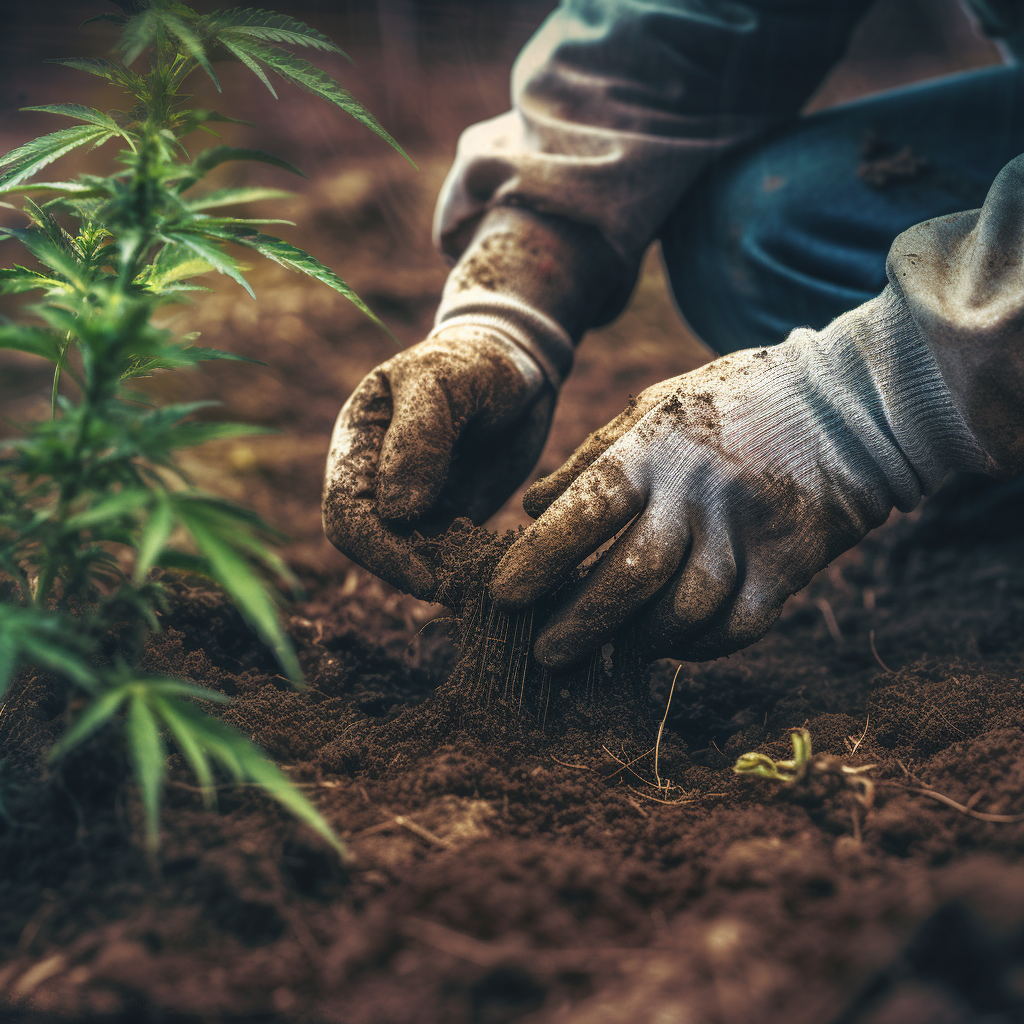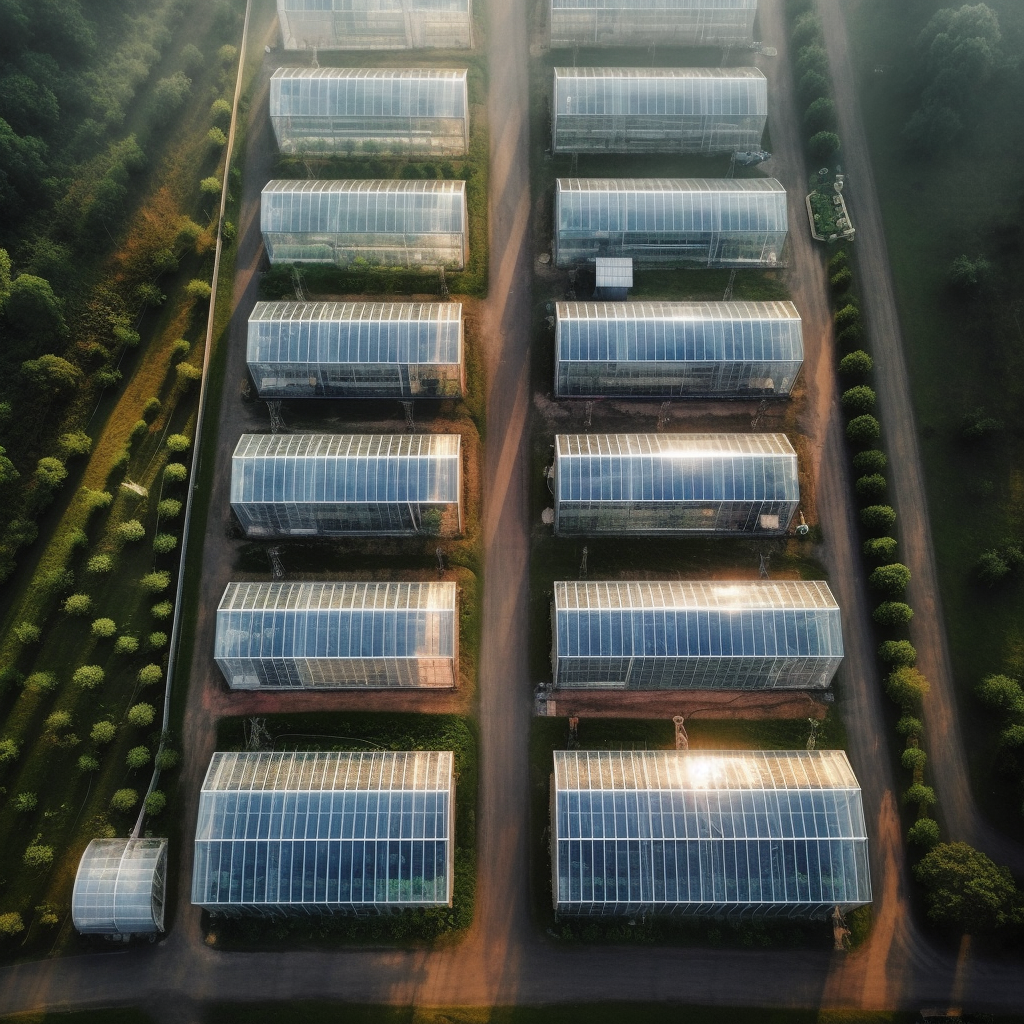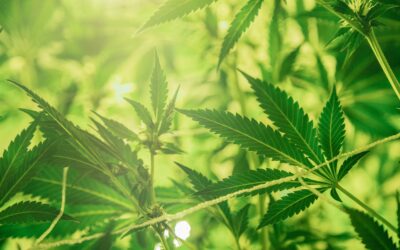Advantages of Hemp Farming in Georgia: Weather, Soil Conditions, Labor, Regulations, and Scaling Potential
Hemp farming has been experiencing a surge in interest in recent years due to the growing recognition of its numerous applications in industries such as textiles, health and wellness, construction, and more. With the increasing demand for hemp-derived products, farmers and entrepreneurs are exploring the potential of this versatile crop.
Selecting the right location is crucial for successful hemp cultivation. Factors such as weather patterns, soil conditions, labor availability, regulations, and scalability play a significant role in determining the viability of hemp farming in a particular region. Making an informed decision about the location can greatly impact the success and profitability of a hemp farm.
When considering favorable locations for hemp farming, Georgia stands out as an excellent choice. The state offers a combination of ideal weather conditions, diverse soil types, an abundance of skilled labor, a supportive regulatory environment, and the potential for scaling up operations. Georgia’s advantageous position for hemp cultivation makes it a compelling destination for farmers looking to capitalize on the burgeoning hemp industry.
Weather Conditions in Georgia
Georgia’s mild climate and long growing seasons provide favorable conditions for hemp farming. The state experiences relatively mild winters, allowing for extended periods of growth without the risk of harsh frosts that could damage or stunt hemp plants. Additionally, the long growing seasons provide ample time for hemp to reach maturity and maximize its yield potential.
Hemp cultivation requires specific temperature ranges for optimal growth, and Georgia offers just that. The state’s climate typically features warm summers and moderate temperatures during spring and fall, which align well with the temperature preferences of hemp plants. This ideal temperature range promotes healthy plant development, enhances resin production, and contributes to higher cannabinoid concentrations in the harvested hemp.
Adequate sunlight and precipitation levels are vital for the successful cultivation of hemp, and Georgia provides these essential elements. The state receives a sufficient amount of sunlight throughout the year, supporting photosynthesis and overall plant health. Moreover, Georgia’s precipitation levels are generally suitable for hemp farming, with a balance between rainfall and irrigation needs. This ensures that hemp crops receive adequate moisture, vital for plant growth, without excessive rainfall that could lead to waterlogging and root rot.

Soil Conditions in Georgia
Georgia boasts a diverse range of soil types spread across the state, offering farmers the advantage of choice and flexibility in selecting the most suitable soil for hemp cultivation. From sandy loam to clay loam and everything in between, the different soil compositions provide varying drainage capacities, water-holding capabilities, and nutrient availability. This diversity allows farmers to tailor their cultivation practices to match the specific needs of different hemp varieties, optimizing plant health and yield potential.
The soils in Georgia are characterized by their rich organic matter and mineral content, which create a fertile foundation for hemp cultivation. The presence of organic matter enhances the soil’s water retention capacity, improves soil structure, and provides a steady supply of nutrients to the growing plants. Additionally, Georgia’s soils are abundant in essential minerals such as potassium, phosphorus, and magnesium, which are vital for plant growth and development. This nutrient-rich composition supports healthy root development, vigorous growth, and overall plant vitality, enabling farmers to achieve high-quality hemp yields.
Georgia’s soil pH levels align favorably with the optimal range required for hemp cultivation. Hemp plants generally thrive in slightly acidic to neutral soils, with a pH range of 6.0 to 7.5. Many regions in Georgia fall within this range, providing an ideal pH environment for nutrient uptake and root development. The balanced pH levels in Georgia’s soils ensure that essential nutrients are readily available to the hemp plants, promoting their overall health and productivity.
Georgia’s soil fertility presents distinct advantages for hemp growth and contributes to the success of hemp farming in the state. The combination of diverse soil types, rich organic matter, mineral content, and optimal pH levels creates an environment that fosters robust plant growth and high-quality hemp yields. The fertile soil in Georgia promotes nutrient availability, enhances water retention, and encourages beneficial microbial activity, all of which are essential for optimal hemp growth. The ability to leverage Georgia’s soil fertility allows farmers to maximize their crop’s potential, leading to increased productivity and profitability in the hemp industry.

Abundance of Skilled Labor
Georgia boasts a strong agricultural tradition, making it an ideal location for hemp farming. The state has a long history of agricultural practices and a deep-rooted farming culture, providing a solid foundation of knowledge and experience in the industry. This agricultural tradition creates a favorable environment for hemp cultivation, as farmers are familiar with crop management techniques, land preparation, and the overall intricacies of working in the field.
One of the key advantages of hemp farming in Georgia is also the availability of experienced farmers and skilled agricultural workers. Many individuals in the state have years of experience in traditional farming practices, including cultivating crops such as cotton, peanuts, and tobacco. This experience translates well into hemp farming, as it shares similarities in terms of cultivation practices, pest management, and harvesting techniques. The presence of a skilled labor force familiar with agricultural operations facilitates a smoother transition for farmers venturing into hemp cultivation.
Skills transferability from traditional crops to hemp cultivation is a significant benefit in Georgia. Farmers with expertise in growing other crops can apply their knowledge and skills to the cultivation of hemp. Many cultivation techniques, such as soil preparation, irrigation management, and pest control, are transferable across different crops. This allows farmers in Georgia to leverage their existing knowledge base and adapt it to the specific requirements of hemp cultivation. The ability to transfer skills from traditional crops to hemp farming not only saves time and resources but also contributes to the overall success of hemp operations in the state.
Favorable Regulatory Environment
Hemp farming operates within a regulatory framework established at both the federal and state levels. At the federal level, the 2018 Farm Bill legalized hemp production by differentiating it from marijuana based on its THC content. This legislation paved the way for farmers to cultivate hemp for industrial purposes, with the condition that the THC concentration remains below the legal threshold of 0.3%. On the state level, Georgia has embraced hemp farming by enacting supportive regulations that align with federal guidelines. These regulations ensure compliance with THC limits, establish licensing requirements, and set standards for testing and labeling of hemp products. The comprehensive framework provides clarity and stability for hemp farmers, enabling them to navigate the regulatory landscape with confidence.
Georgia demonstrates a proactive and supportive stance on hemp farming, recognizing its potential economic benefits and embracing its cultivation. The state government has actively engaged with stakeholders in the hemp industry to develop policies that facilitate its growth. This supportive stance is reflected in Georgia’s commitment to providing resources, education, and technical assistance to farmers entering the hemp market. By fostering collaboration and offering guidance, the state creates an enabling environment that encourages farmers to explore the opportunities presented by hemp cultivation. This supportive approach demonstrates Georgia’s recognition of hemp as a valuable agricultural commodity and its dedication to promoting its success within the state.
Licensing requirements and the permit process for hemp farming in Georgia have been streamlined, simplifying the administrative procedures for farmers. The Georgia Department of Agriculture oversees the licensing process, which involves submitting an application, providing necessary documentation, and paying the required fees. The department ensures a smooth and efficient process, allowing farmers to obtain their licenses in a timely manner. The streamlined permit process reduces unnecessary bureaucratic hurdles and administrative burdens, enabling farmers to focus on their core operations. This efficiency in licensing and permitting contributes to the overall ease of doing business and encourages farmers to pursue hemp cultivation in Georgia.
Georgia offers economic incentives and grants to support hemp farmers in their endeavors. The state recognizes the potential economic impact of the hemp industry and provides various incentives to foster its growth. These incentives may include tax credits, grants for research and development, access to funding, and technical assistance programs. Such initiatives aim to alleviate some of the financial burdens associated with starting and expanding hemp farming operations. By providing economic incentives, Georgia encourages farmers to invest in infrastructure, equipment, and research, ultimately strengthening the hemp industry’s presence within the state. These resources and financial support contribute to the long-term sustainability and success of hemp farming in Georgia.

Scalability and Market Potential
There is a growing market demand for hemp-derived products, which presents a promising opportunity for farmers in Georgia. The versatility of hemp allows for the production of a wide range of products, including CBD oils, textiles, building materials, and even food products. With increasing consumer interest in natural and sustainable alternatives, the demand for hemp-derived products continues to rise. Georgia farmers have the advantage of tapping into this growing market and capitalizing on the high demand for hemp-based goods.
Georgia’s strategic location for distribution and transportation further enhances the scalability and market potential of hemp farming in the state. Situated in the southeastern United States, Georgia has excellent connectivity through its extensive transportation infrastructure, including highways, railways, and ports. This advantageous location enables efficient distribution of hemp products both domestically and internationally. Farmers in Georgia can leverage this logistical advantage to reach a broader customer base, ensuring timely and cost-effective delivery of their hemp-derived goods.
The ability to scale hemp production is a crucial factor in meeting market needs, and Georgia offers the potential for such scalability. The state provides ample land for agricultural expansion and has a supportive regulatory environment that encourages the growth of hemp farms. With the ability to increase cultivation acreage and optimize production practices, farmers in Georgia can scale their operations to meet the growing demand for hemp-derived products. This scalability not only ensures a consistent supply of hemp but also positions farmers to capture a larger market share as the industry continues to expand.
The hemp industry offers the potential for diversified revenue streams, which is another advantage for farmers in Georgia. Hemp-derived products have applications in various industries, including health and wellness, beauty and skincare, textiles, and even sustainable construction materials. By diversifying their product offerings, farmers can tap into multiple market segments and reduce the risk associated with relying on a single product or market. This diversification allows for greater flexibility and resilience in the face of market fluctuations, creating additional opportunities for revenue generation within the hemp industry.
Infrastructure and Market Access
Access to processing and manufacturing facilities is a key advantage for hemp farmers in Georgia. The state is home to a growing number of processing and manufacturing facilities that specialize in hemp extraction, refining, and product development. These facilities provide farmers with convenient options to process their harvested hemp into various marketable forms, such as CBD oils, extracts, fibers, and other hemp-derived products. Having local access to such facilities reduces transportation costs and time, streamlines the production process, and ensures the preservation of the hemp’s quality and potency.
Georgia’s strategic location provides hemp farmers with proximity to major consumer markets. The state has excellent connectivity to urban centers and densely populated regions in the Southeastern United States. This geographical advantage allows farmers to easily access and supply their hemp-derived products to a large customer base. With shorter transportation distances, farmers can reduce shipping costs, improve product freshness, and respond more effectively to market demands. Being geographically close to consumer markets positions Georgia hemp farmers to establish strong relationships with retailers, wholesalers, and distributors, enhancing their market reach and potential sales opportunities.
Georgia benefits from established distribution networks, which facilitate the efficient movement of hemp products within and beyond the state. The transportation infrastructure in Georgia includes well-connected highways, railways, and ports that support the logistics of product distribution. These existing networks enable farmers to seamlessly transport their hemp products to local, regional, and even international markets. Leveraging these distribution networks, farmers can ensure timely delivery, lower transportation costs, and gain a competitive edge in the marketplace. The accessibility and efficiency of Georgia’s distribution networks contribute to the overall competitiveness and market access for hemp farmers in the state.
The potential for value-added products is another advantage offered by Georgia’s infrastructure and market access. Beyond raw hemp material, there are numerous opportunities to create value-added products from hemp in the state. Georgia’s access to processing facilities and manufacturing capabilities allows farmers to explore the development of innovative hemp-based products. This could include items such as CBD-infused foods and beverages, natural cosmetics, textiles, biofuels, and sustainable building materials. By tapping into the potential for value-added products, farmers can diversify their product offerings, target niche markets, and increase their profit margins. The infrastructure and market access in Georgia provide a solid foundation for farmers to capitalize on the growing demand for unique and sustainable hemp-derived goods.
Experienced Farmers and Expertise
Georgia boasts a wealth of agricultural experience, with farmers in the state having years of expertise in traditional crops. This accumulated knowledge and skillset provide a solid foundation for farmers transitioning to hemp cultivation. The years of agricultural experience in Georgia demonstrate the resilience and adaptability of farmers in the face of changing market demands and evolving farming practices.
The knowledge transfer from traditional crops to hemp farming techniques is a significant advantage for experienced farmers in Georgia. Many cultivation practices, such as soil management, pest control, and irrigation methods, can be applied to hemp cultivation with slight modifications. Farmers with expertise in traditional crops can adapt their knowledge to the specific requirements of hemp, leveraging their existing skills to optimize production and achieve successful outcomes. This knowledge transfer helps experienced farmers in Georgia quickly understand and implement best practices in hemp farming.
The presence of experienced farmers in Georgia creates collaboration opportunities within the hemp farming community. Experienced farmers can share their knowledge and expertise with those who are new to hemp cultivation, fostering a collaborative environment where ideas, techniques, and lessons learned are exchanged. This collaboration contributes to the collective growth of the industry, allowing farmers to learn from each other’s successes and challenges. The sharing of expertise among experienced farmers in Georgia strengthens the overall knowledge base and cultivates a supportive network that benefits all participants in the hemp farming community.
The cliffnotes of what we learned in this post:
Hemp farming in Georgia offers a multitude of advantages that make it an appealing choice for farmers and entrepreneurs in the industry. The state’s favorable weather conditions, diverse soil types, and abundance of skilled labor provide a solid foundation for successful hemp cultivation. Additionally, Georgia’s supportive regulatory environment, streamlined permit process, and availability of economic incentives further contribute to the viability of hemp farming in the state. Moreover, the scalability potential and market demand for hemp-derived products open up opportunities for farmers to capitalize on this booming industry.
For aspiring hemp farmers, Georgia emerges as a prime location to embark on their hemp farming journey. With its rich agricultural tradition and experienced farmers, Georgia provides a supportive community that facilitates knowledge transfer and the adaptation of existing farming expertise to hemp cultivation. The state’s strategic location for distribution and transportation offers logistical advantages for accessing wider markets. Furthermore, Georgia’s potential for scaled-up hemp production and diversified revenue streams within the industry enhance the long-term prospects of farmers.
In summary, Georgia’s combination of favorable weather and soil conditions, a supportive regulatory environment, an abundance of skilled labor, and the potential for scalability make it an ideal destination for hemp farming. As the market demand for hemp-derived products continues to grow, aspiring hemp farmers should strongly consider Georgia as a prime location to establish their operations. By harnessing the advantages that Georgia offers, farmers can position themselves for success in the thriving hemp industry, contributing to the state’s agricultural growth and reaping the benefits of this versatile crop.





0 Comments